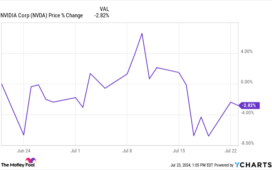(Bloomberg) — Pacific Investment Management Co. expects more regional bank failures in the US because of a “very high” concentration of troubled commercial real estate loans on their books.
Most Read from Bloomberg
“The real wave of distress is just starting” for lenders to everything from malls to offices, John Murray, Pimco’s head of global private commercial real estate team, said in an interview. His division sits within Pimco’s $173 billion alternatives business.
Uncertainty over when the Federal Reserve may cut interest rates has exacerbated challenges faced by the CRE sector, where high borrowing costs have hammered valuations and triggered defaults, leaving lenders stuck with assets that are tough to sell. Contrary to some market expectations, larger banks have been disposing of some of their higher quality assets first to avoid deeper losses, according to Murray.
“As stressed loans grow due to maturities, however, we expect that banks will start selling these more challenged loans to reduce their troubled loan exposures,” he said, adding his team has been snapping up CRE loans offloaded by some large US banks for the past 18 months.
The turmoil has been particularly felt among regional banks, which boosted their CRE exposure that in many cases is now worth only a fraction of their value at their peak. Smaller banks have also continued to worry investors ever since the collapse of a few last year.
Earlier this year, New York Community Bancorp shocked investors by slashing its dividend and stockpiling more cash for potentially bad loans, sending shares into a tailspin that ended in a capital injection. US Bancorp, the largest regional bank by assets, increased its provisions for credit losses in the first quarter. Shares of Axos Financial Inc. slumped last week after a short seller took aim at what it called the bank’s “glaring” property loan problems.
Regional banks were also the only lenders that didn’t demand extra down payments from commercial-property borrowers in recent years, highlighting their vulnerability to falling values, according to a report released by MSCI Real Assets in March. Deposit-taking institutions face an estimated $441 billion wall of maturing property debt this year.
For larger banks, the property exposures aren’t expected to cause systemic failures as their CRE lending was curbed after the 2008 crisis, Murray said. But borrowers’ failure to repay means they’re lending even less compared with 2021 and 2022, he added.
Meanwhile, many mortgage real estate investment trusts have become more sidelined as they deal with problems of their own. That’s limited their ability to underwrite new investments. Starwood Real Estate Income Trust tightened its shareholders’ ability to pull money last month in an effort to preserve liquidity and stave off asset sales, while Blackstone Inc.’s $59 billion property trust saw an uptick in withdrawal requests.
Lending volumes for major public mortgage REITs have plunged 70% from 2021 levels, according to Murray.
While banks tend to hog most of the headlines, another area that needs close attention is the more than $200 billion of loans made by debt funds in the US that are set to mature through 2025, Murray said. Many of these loans were originated during the peak pricing era of 2021, often with a three-year term and a three-year rate cap.
“The first catalyst for stress at the asset level is occurring right now, as assets will struggle to meet extension tests in this higher rate environment,” Murray said.
The Newport Beach, California-based asset manager is also keeping an eye on how German banks deal with their commercial real estate exposure.
“The combination of rising rates plus recessionary pressures creates real challenges for commercial real estate, from both a capital markets and fundamentals perspective,” Murray said.
–With assistance from Neil Callanan and Hannah Levitt.
(Updates with other banks exposed to property loans in sixth paragraph.)
Most Read from Bloomberg Businessweek
©2024 Bloomberg L.P.















